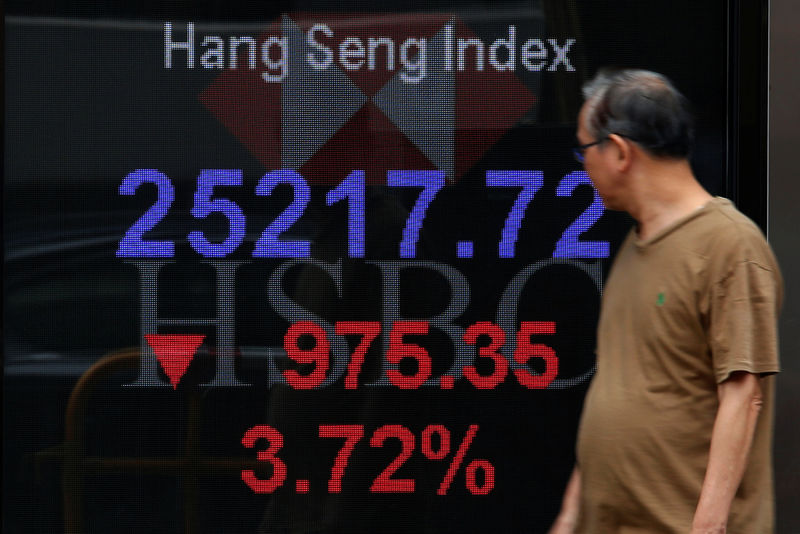This post was originally published on this site
https://i-invdn-com.investing.com/news/LYNXNPEE9A072_M.jpg
Investing.com — Most Asian stock markets retreated on Thursday, tracking overnight losses on Wall Street amid growing concerns over a U.S. recession, largely softer-than-expected inflation data, and hopes of a pause in the Federal Reserve’s rate hike cycle.
Hong Kong’s Hang Seng index was among the worst performers for the day, down about 0.5% due to a 3% drop in shares of Alibaba Group Holding Ltd (HK:9988) (NYSE:BABA). A report said that Japanese investment giant SoftBank Group Corp (TYO:9984) plans to offload almost the entirety of its stake in the e-commerce giant.
Hong Kong’s technology heavyweights were still reeling from losses this week, after major Tencent (HK:0700) shareholder Prosus (AS:PRX) said it will sell more shares in the internet giant.
Softbank shares were flat, while the Nikkei 225 index traded sideways.
Regional economic readings offered some positive cues. Chinese bourses trimmed earlier losses, with the Shanghai Shenzhen CSI 300 index now down 0.4%, while the Shanghai Composite was flat after data showed the country’s exports unexpectedly rebounded in March, signaling some improvement in weak offshore demand that has battered the country’s manufacturing sector.
India’s Nifty 50 and BSE Sensex 30 indexes were flat after data on Wednesday showed consumer price index inflation (CPI) eased more than expected in March, lending more credence to the Reserve Bank’s recent decision to pause its rate hike cycle.
But broader Asian markets traded in a flat-to-low range as the minutes of the Federal Reserve’s March meeting showed that policymakers were concerned over a mild recession this year. While the central bank is likely to pause its rate hike cycle in the near future, an ensuing slowdown in economic growth could bode poorly for risk-driven Asian markets.
Wall Street indexes logged overnight losses as the cautious tone struck by the minutes largely offset somewhat positive inflation data.
U.S. CPI inflation also read weaker-than-expected for March, further spurring bets on a Fed pause by as soon as June. But core CPI, which excludes volatile food and fuel prices, still remained stubbornly high, putting a lid on expectations of a less hawkish Fed.
This uncertainty kept markets wary of risk-heavy assets, and fueled more flows into safe haven assets such as gold.
Philippine shares led losses across Southeast Asian markets with a 1% drop, while Australia’s ASX 200 fell 0.3%.
Substantially stronger-than-expected labor data for March fueled bets that the Reserve Bank of Australia may not yet be done with raising interest rates, despite announcing a pause earlier this month.

